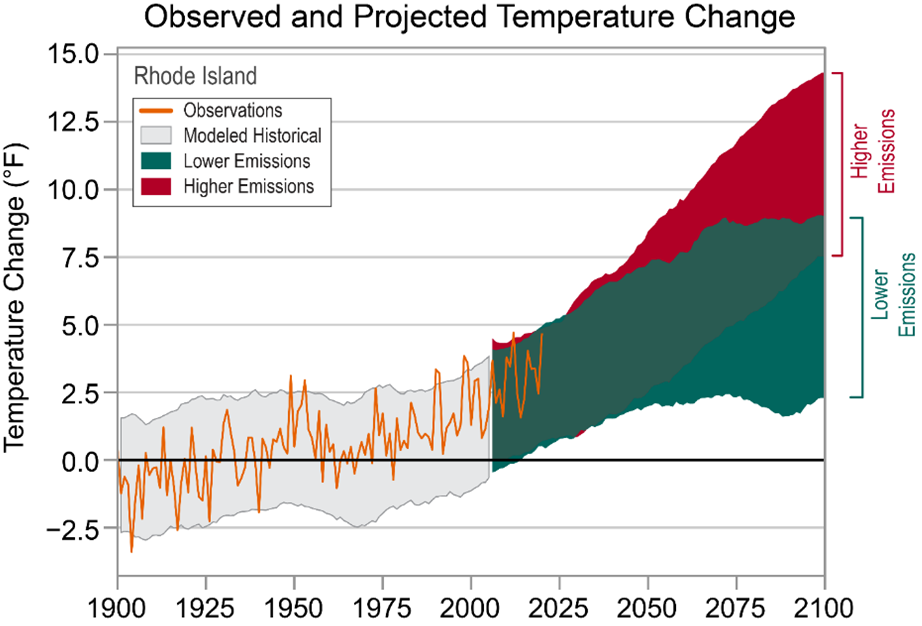The US has observed a noticeable increase in temperatures, averaging ~1 to 2 degrees over the past century. Predictions suggest that this warming trend will continue in the coming decades. Depending on emission scenarios and models, average temperatures could rise by 3 to 12 degrees by the year 2100.
Rhode Island has already felt significant impacts from rising temperatures, with an increase of more than 3 degrees recorded in the last century alone. In Providence, there has been a marked rise in extreme heat events, with the average number of days above 90 degrees doubling since 1980. The city is highly vulnerable to heat.
Projections suggest that this trend of unprecedented warming will persist throughout the century, especially under high emission scenarios. While heat waves are expected to become more intense, there may be a reduction in the intensity of cold waves. A study has shown historic and projected heating and cooling degree days across the US, with more cooling days expected from around mid century. In the city of Providence, the estimated number of cooling days of 138 could potentially rise to 150 in 30 years. It is evident that extreme heat disproportionately affects low-income, marginalized, and vulnerable communities. Therefore, proactive initiatives and solutions to mitigate the impacts, such as urban forestry, must also prioritize equity and promote climate justice.
